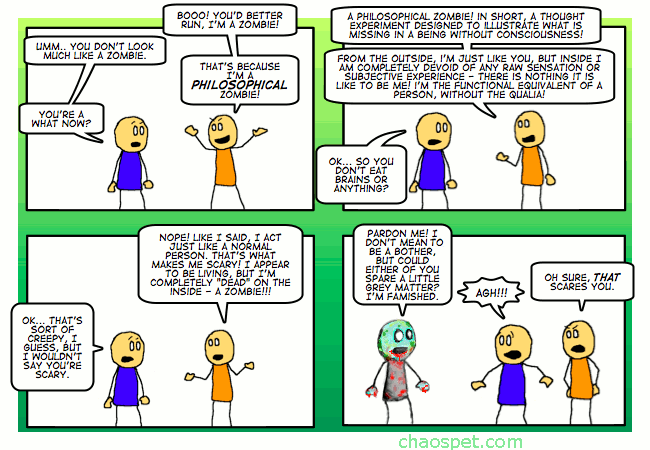At Uncommon Descent, Elizabeth mentioned that she liked what I was calling “emergentism”. Here’s a brief overview, in contrast with dualism and materialism, that perhaps will spark some discussion.
(1) Dualism gives us The Bifurcated World: the world consists of two fundamentally different kinds of substance (mind and matter), each of which is characterized by an essential property (mental and physical), and is constituted by logically and metaphysically distinct substantial particulars (minds and bodies). Nothing is essentially both physical and mental, although some things may exist as temporary unions of mind and body. (How logically and metaphysically distinct things can causally interact (or even appear) to causally interact is a serious problem.)
(2) Materialism gives us The Layered World: the world consists of a series of “levels”, each of which hierarchically imposed on the others, and each level supervenes on the level below it. Mental facts –> biological facts –> chemical facts –> molecular, atomic, and quantum facts. (A major problem with this view is that each ‘level’ has its own conceptual, ontological, and causal integrity — whereas some philosophers hold that biology is irreducible to chemistry for merely epistemological and methodological reasons, I hold the stronger view that biology is irreducible to chemistry for ontological (or metaphysical) reasons.)
(3) Emergentism gives us the Dynamic World: the world consists of processes that are inherently active and reactive, energetic, and operating at all ‘scales’ of temporal and spatial resolution — some processes are vast and slow, others small and fast, and many in-between. Some of these processes are merely physico-chemical, some are biological, and some are mental. The basic elements in this ontology are processes, not substances (as in dualism) or even particles (as in materialism).
As I see it, the frequently-heard allegation (made by dualists and theists) that emergentism is an intellectual fraud depends on whether there is a difference that makes a difference between emergence and supervenience.




